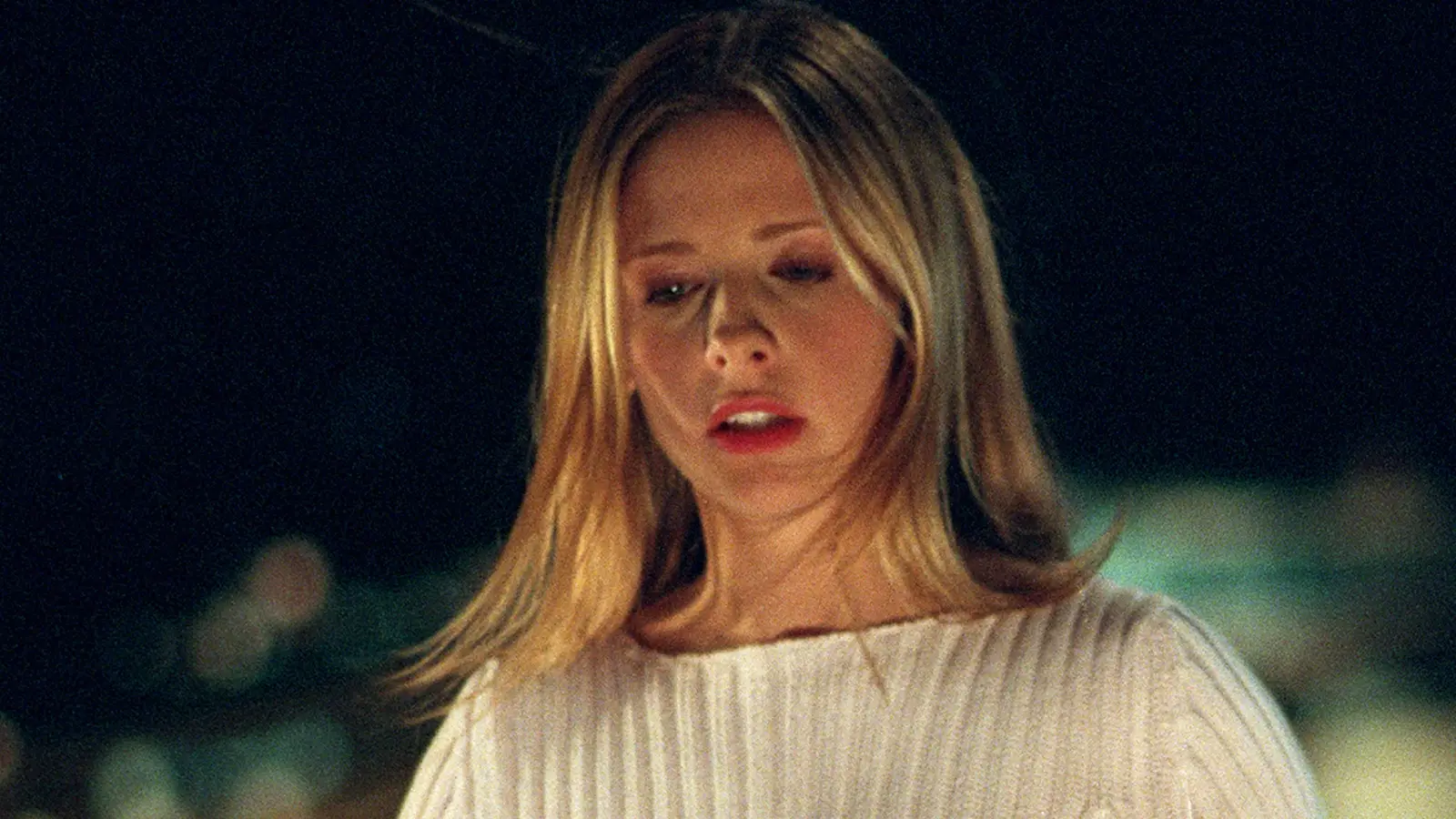
From its iconic big bads to the lovable Scooby Gang, there are many things we love about Buffy the Vampire Slayer, but the reason why it was such a consistently fantastic show is all because of Sarah Michelle Gellar’s tour de force performance as Buffy Summers. Throughout Buffy’s seven seasons, Gellar showed the heroine’s vulnerability, selflessness, and unwavering heroism.
The actress has left an indelible mark on pop culture, and much to fans’ delight, Gellar will once again be playing Buffy Summers in the upcoming Buffy reboot. Though she’ll be performing in a supporting capacity, her appearances will no doubt lead to more iconic Buffy scenes. Until then, we can rewatch Gellar’s best performances in the original show.
A Silent Slayer
Season 4, Episode 10, “Hush”
With her witty dialogue and penchant for making up words, Buffy is a fairly verbose character, to the point that “Buffy speak” became a term in the pop culture lexicon, which describes the unique way Buffy and her friends talk. But when she’s robbed of her voice by Buffy’s scariest monsters, the Gentlemen, Gellar makes the heroine just as compelling.
She shows Buffy fear and panic at her situation, along with an incredible amount of humor — particularly when she attempts to use hand gestures to convey slaying, and the Scoobies think she’s making a sexual innuendo. It’s also a powerful moment when Buffy lets out her loud, girlish scream that ultimately kills the Gentlemen.
But Gellar’s best acting comes at the very end of the episode, when Buffy and Riley see each other for the first time after having discovered their respective secret identities. Their silence — not due to having their voices taken away but simply not being able to find the words — speaks volumes.
“So I Say We Change The Rule”
Season 7, Episode 22, “Chosen”
Gellar always turns Buffy’s badassness up to the hilt when she’s leading her allies into battle, and the final fight against the First in Buffy’s series finale is the most important one the heroine has ever had to face. But this one is different, not because the stakes are higher, but because Buffy completely changed the game of what a Slayer is.
In her speech the night before, which we don’t see in full until the battle is underway, Buffy explains that she’s ready to “change the rule” that there can only be one Slayer to save the world, and enlists Willow to cast a spell activating the Slayer powers in every Potential. It’s the ultimate embracing of the show’s feminist empowerment themes.
Gellar is sheer perfection here. She’s calm and measured but with an undercurrent of rage at the “bunch of men” who established the broken Slayer system. She’s also confidence personified, with her assuredness in her best friend’s powerfulness and the fact that they’re going to win the war. Every fan deep down wants to be Buffy, and here, Gellar proves why.
Without Her Slayer Powers
Season 3, Episode 12, “Helpless”
Buffy may bemoan her Slayer powers throughout Buffy’s first few seasons, but she doesn’t realize how much they’ve become a part of her identity until they’re taken away from her in season 3, episode 12, “Helpless.” For as excellent as she is at portraying Buffy’s heroism, Gellar is just as spectacular at showing her sheer terror at her inability to save herself or others from the Hellmouth’s dangers.
Though she has recently turned 18 and become an adult, Buffy is almost childlike in her fear. This makes it even more of a gutpunch when she realizes it’s Giles, her Watcher and father figure whom she trusts more than anyone, who’s been drugging her to suppress her powers.
Buffy’s sense of betrayal that Gellar is able to convey with her eyes alone breaks the audience’s heart right along with Giles’s. It also makes Buffy’s fight against the deranged vampire, Zachary Kralik, all the more emotional because we feel how terrified she is, even though we know she’s going to win.
Telling Her Friends She Was In Heaven
Season 6, Episode 7, “Once More, With Feeling”
When most people think about “Once More, With Feeling,” they often think about the Buffy musical’s iconic songs, like Tara’s love ballad, “Under Your Spell,” or Anya rocking out to her fear of bunnies in “I’ve Got a Theory”/”Bunnies”/”If We’re Together.” But the episode also sees one of Gellar’s best Buffy moments when the Slayer sings the truth — that her friends pulled her out of heaven.
One of the episode’s biggest strengths is how organically it weaves season 6’s story arc into the plot. Buffy is desperately clinging to this painful secret, but in musicals, you can’t help but sing your feelings, so that’s what she does in “Something to Sing About.”
The sad lilt in Buffy’s voice when she sings, “I was in heaven,” is absolutely soul-crushing, and Gellar proves herself as an unmatched lead actress, as her performance also brings out the emotions in her co-stars, particularly Alyson Hannigan as Willow, who led the resurrection spell. Buffy’s earlier private confession to Spike almost made the list, but this moment hits for every single character.
Buffy As Faith
Season 4, Episode 20, “Who Are You?”
Gellar has played a possessed Buffy, an 18th-century damsel in distress Buffy, and even a bewitched Buffy who was — shudder — attracted to Xander. But in season 4’s “Who Are You?,” the actress plays a whole other character in Faith, who cast a spell that saw her and Buffy swap bodies.
It wasn’t as simple as wearing leather pants and saying, “five by five”; Gellar became Faith, completely taking on Eliza Dushku’s physical mannerisms and vocal cadence as the rogue Slayer. As much as we were concerned for Buffy the character and relieved to see the spell broken, we also wish it had lasted a bit longer because Gellar as Faith as Buffy was television gold.
Death Is Buffy’s Gift
Season 5, Episode 22, “The Gift”
To say Buffy makes sacrifices as the Slayer is an understatement. But she makes the ultimate sacrifice in season 5’s “The Gift,” when she gives her life to save the world. The act itself is heroic enough, but Gellar shows why Buffy is television’s ultimate superhero through her agency and determination.
When Buffy knows what needs to be done, the decision is simple. Gone is the fear of dying she had in season 1 after the prophecy. In fact, Buffy’s strongest emotion is the love and concern she has for her little sister — a protector up until the very end. Gellar is able to convey so many of Buffy’s emotions through how she runs, and here it was peace at delivering her gift.
Receiving The Class Protector Award
Season 3, Episode 20, “The Prom”
Being a Slayer is a thankless job, to say the least, especially because Buffy has to keep her identity a secret. It also means that she has to miss out on the joys of being a teenager, whether that’s joining the cheerleading squad, dating boys, or even having her picture in the yearbook.
So, when Buffy not only gets to attend the prom but is given the Class Protector award by her classmates, it’s one of the show’s most touching moments, made all the more so by Gellar’s expressions of surprised joy and gratitude.
Feeling seen and appreciated for who you are is one thing, but to be celebrated for it is truly special, and Gellar makes it a more magical moment than anything supernatural on the show. It’s no wonder why “The Prom” is Gellar’s favorite Buffy episode.
Her Final Confrontation With The Master
Season 1, Episode 12, “Prophecy Girl”
Throughout Buffy season 1, Buffy is very much a reluctant hero, but that all changes in the season finale, “Prophecy Girl.” Gellar gives an Emmy-worthy performance when she shows Buffy’s raw vulnerability at finding out she’s going to die, but that’s not the best part.
When Buffy is brought back from the dead after the prophecy comes true, she is a Slayer on a mission. The theme song kicking in as Buffy strides across campus to face off with the Master for the final time could have been incredibly cheesy, but it was a thrilling, impactful moment thanks to the badass determination in Gellar’s performance.
You want to stand up and cheer when Gellar says, “I may be dead, but I’m still pretty,” because it shows that Buffy will be a hero and save the world entirely on her own terms. It’s here that Buffy went from a fun supernatural show to iconic, must-watch TV, and it’s all thanks to Gellar.
Sending Angel To Hell To Save The World
Season 2, Episode 22, “Becoming, Part 2”
Nobody portrays heartbreak like Gellar as Buffy, and if we thought it was tragic when the Slayer had to deal with Angel losing his soul, it’s absolute unmitigated devastation when she has to sacrifice him to save the world. It’s impossible to watch the scene any other way but through tear-stained eyes.
For half the season, Buffy had been working up the emotional strength to kill Angelus. In the two-part “Becoming” episode, she’s finally ready. This makes it all the more painful when she realizes it’s not Angelus she must slay, but the love of her life, Angel.
Most people wouldn’t have the strength to do what Buffy did, and would have let the world end before killing their soulmate. But Buffy is not most people. Gellar’s heartbroken vulnerability is on full display when she permits herself a brief romantic reunion with Angel before telling him to close his eyes and plunging a sword into his stomach.
Gellar and David Boreanaz feed off each other’s emotions in the scene, with his stunned look of betrayal giving way to her expression of guilt and horror at what she’s done. Together, they prove why Buffy and Angel aren’t just one of Buffy’s best romances, but one for the ages.
Finding Joyce’s Body
Season 5, Episode 16, “The Body”
Any scene in which a character finds their dead parent will be devastating, but Gellar’s performance in “The Body” turns Buffy’s discovery of Joyce’s body into one of the most harrowing and traumatic scenes in television history. If we thought Gellar’s childlike vulnerability was emotional in “Helpless,” it’s nothing compared to what we see here.
It starts at the end of the last episode with Buffy’s “Mom? Mom?… Mommy?” and in “The Body” gives way to full-fledged panic before she completely dissociates, and we the audience experience the moment through her POV. Images like the buttons on the phone become larger, and sounds become silent and garbled, or loud and jarring.



